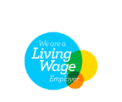We build Drupal 8 sites that are ready for Drupal 9. Learn how we embrace the roadmap.
Drupal 8 sites that are ready for Drupal 9
We talked a little here about Drupal’s release history. While there is a step to migrate from 7 to 8 - with a very different architecture - from 8 onwards we have a stable and predictable release cycle going into 9, allowing us to migrate without the rewrites we saw in 7 to 8.
Spontaneity is great. But not in software release cycles.
So the good news is, we swallowed our medicine in the 7 to 8 transition, and we are now on an architecture that gives us stability, efficiency, standardisation and best practice in our Drupal Core code.
So hopefully this makes the next bit of news easier to handle.
Drum roll
Drupal 9 is planned for release in June 2020. Drupal 8 will become end-of-life (unsupported) in late 2021 - around about the same time as Drupal 7 is also end-of-life.
Wait, what now?
Wait, what? I hear you say. We just invested all that effort moving our web estate from 7 to 8 (it was a complete re-write; the marketing team has only just recovered) and now we are binning Drupal 8 a year later?
On the face of it this does not sound great. It is in fact really good news.
Good news!
From 8 onwards, Drupal is now running the Symfony architecture under the hood. Symfony is the kind of modular, object-oriented and standardised web platform architecture that enterprise platforms with regular and predictable release cycles need. In commercial terms, it means we get to spend your project fees delivering more impactful content and functionality, and less risk and housekeeping. Good for your CTO, good for your CFO and good for your customers.
Ok, I’m calmer now. What next?
From 8 onwards we will see a more predictable (half yearly) minor release cycle. And major releases (moving from 8 to 9 etc) will not require complex migrations. The main driver from 8 to 9 is actually taking OUT the unused code left over from the 8 implementation process. Modules (the code that adds functionality to the core) will not need to be rewritten as they were in 7 to 8.
What does this mean for your business?
Speaking directly, we can now add functionality and features to your web platform without needing to completely re-write them for the next major release. Your investment becomes incremental, not replenishing. We can build platforms that easily compete with the proprietary monoliths (no offence, Adobe and SiteCore) with scale and stability fit for enterprise.
In fact the sites we build for you today in 8 are already compatible with 9.
More here from Drupal’s founder, Dries Buytaert.









